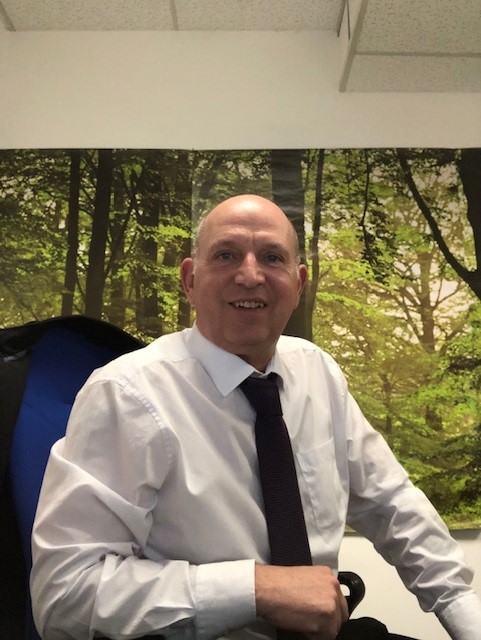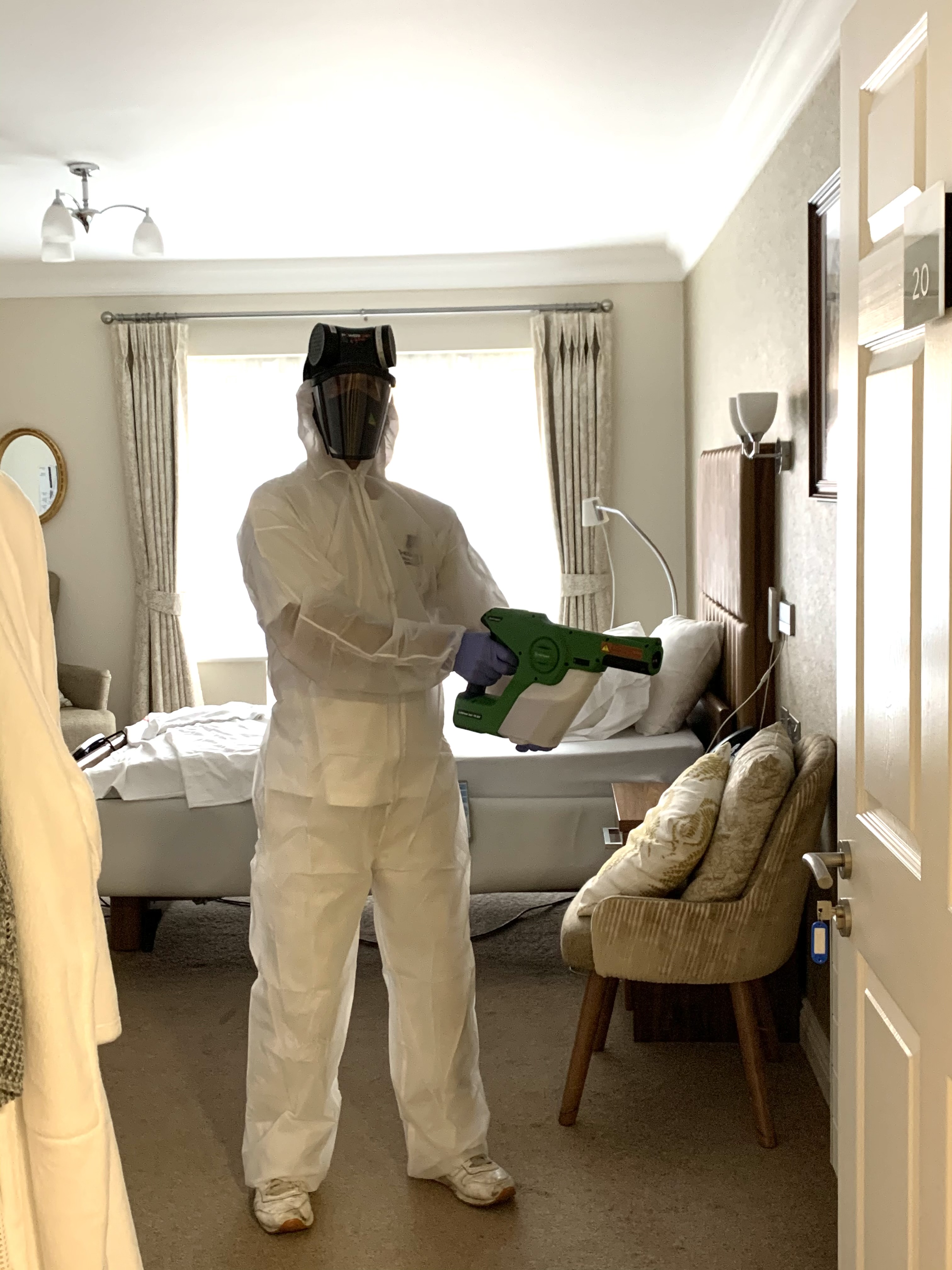March 2021: How Renovo keeps our Care & Support schemes Covid - free
Everyone who works at One Housing Care and Support becomes an important part of our family. Because we’re all involved in looking after your family, even indirectly. The outside world might take our hygiene and maintenance teams for granted. Coronavirus has changed all that. Of course, at an assisted living scheme, hygiene IS health, and always has been.
We spoke with Terry Tunesi, Operations Manager at Renovo, to discuss the changes Covid-19 brought for our cleaning and maintenance teams.

Firstly, for readers not familiar with Renovo, what’s the relationship with One Housing?
Renovo was launched as a joint venture between One Housing and Chequers Contract Services. Chequers had been servicing One Housing’s various schemes for at least a decade before the joint venture began. Renovo was formed in order to provide a more efficient and cost-effective service to One Housing locations, one where everyone involved has a vested interest in doing the very best they can. True partnership.
What services do you provide at One Housing schemes?
Every scheme gets a housekeeping team and a handyman service. We also provide deep-cleaning services, of course, plus electrical and building compliance and maintenance, window cleaning and grounds maintenance. Training is vitally important for us; it’s our responsibility to support the highest standards of care through the highest standards of workmanship. We’re corporate members of BICSc (the British Institute of Cleaning Science) and have our own accredited training centres. Housekeepers and specialist cleaners get best-practice training in everything from biohazard decontamination cleans to emergency infection treatment. On the electrical and building side, we’re an NICEIC-approved contractor, and as accredited BALI (British Association of Landscape Industries) and BAGMA (British Agricultural and Garden Machinery Association) members, our grounds maintenance teams have the very best training.
But it’s just as important that our people understand the environment they’re working in and the people they’re serving. Our housekeepers, handymen and specialist cleaning teams all work right there where Care & Support customers live – in their homes. One Housing has a bespoke Senior Plus Service, a training programme covering safeguarding and other issues directly related to caring for vulnerable people. Renovo staff are also invited to take part in any programmes that may form part of their daily routines. All of our staff receive dementia awareness training too, becoming registered ‘Dementia Friends’. By having staff permanently assigned to one scheme, they become part of the Care and Support team, working closely with the carers and management, and also getting to know customers. Familiarity and trust are everything in this environment.
How did you approach the challenge of Covid-19?
The situation escalated quickly and, as you know, there were countrywide problems with getting hold of PPE. Thankfully, we have a lot of contacts in the industry and were able to order enough of everything from masks to vinyl gloves to sanitisation products. Since most people in our head office were working from home, One Housing turned it into a PPE storage warehouse, which has been kept replenished, and our staff make deliveries to each site we look after, as and when required.
In any assisted living scheme, hygiene is vitally important, but coronavirus did mean we needed to review our standard routines and our cleaning products. We use a very well-regarded range of cleaning products from Evans and the first thing we did was to look for alternatives with that manufacturer; alternatives with stronger anti-viral properties but which would not disrupt the service in the homes. We soon found that Evans carried cleaning products designed to destroy and protect against enveloped viruses – which is what coronaviruses are. They’re really well packaged, too, so the trigger sprays are pre-labelled so you always know at a glance that you’re using the right product for the right purpose in the right place.
Were there any other changes in cleaning practice or products to tackle the virus?
Following government guidelines, every site and product has had specific risk assessments carried out, and our people have regular training and toolbox talks to ensure they’re fully aware of how and where to use each product, and how to protect the residents, staff and themselves when they’re using them.
That’s particularly important for a couple of the specialist products we introduced: the backpack and handheld electrostatic sprayers. These are particularly useful for surfaces which require a quick response in the way of sanitising. What happens is that the cleaning fluid becomes electrostatically charged, so the spray particles are attracted to surfaces and wrap themselves around it. So, you cover all the hard-to-reach spots where a virus might usually survive.
Of course, on those rare occasions where a resident has had a Covid-positive test, we’ve worked closely with the schemes, once they’ve isolated the customer, to perform a fogging deep clean. All this needs to be authorised by the general manager and the resident’s family, of course – good communication keeps everyone informed and reassured. Laundry comes into this, of course, as well, so we sourced detergent appropriate for destroying viruses. The automatic dispensing machines guarantee that every wash gets the correct load.
Not every scheme is suitable for receiving visitors, but we’ve been able to make some in-person visits much safer by sourcing and installing screens, as well, which have been custom-built for their exact location and purpose.
We’re really proud that we’ve been able to help protect customers and staff with minimal disruption and at minimal extra cost. With communal living a bit more restricted within each scheme, we changed our cleaning rotas so that our people are performing more regular and intensive cleans in high-traffic and frequently used areas of each scheme, and less often where particular areas see less use. It means we haven’t needed to put more people in place – people unfamiliar to the customers, at that – which meant no change in cost to the standard cleaning and maintenance schedule, but high-level protection for people living and working at Care and Support schemes.
